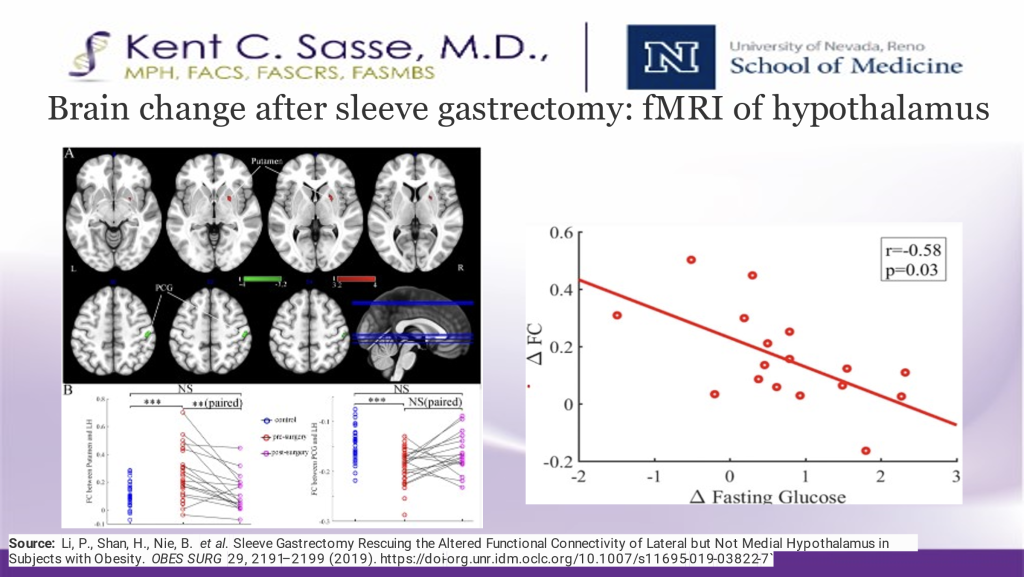Can a stomach surgery procedure really change the brain tissue? Indeed, it does. Here’s how metabolic surgery change the brain.
It Relates to Hormonal Changes
Maintaining metabolism, body weight, hunger, long-term blood sugar, fat storage, and many other complex functions of the body involve interactions between systems in the gut, pancreas, liver, and even the brain. The science behind bariatric surgery has taught us how these procedures work. They alter the tissues where key hormones are produced, and these permanent changes in the hormone levels result in long-term lowered blood sugar and body weight set points as well as reductions of circulating triglycerides and fat storage. But there are also fascinating effects reported by people who have had a sleeve gastrectomy such as reduced cravings and less hunger. Don’t these feelings come at least in part from the brain?
The answer is yes. The brain plays a key role in hunger, satiety, and cravings, as well as many of the choices we make. The belief now is that sleeve gastrectomy changes stomach tissue and hormone profiles which circulate through the entire body — including the brain tissue. We believe those brain tissues adjust and respond in new ways after the sleeve gastrectomy.
Early Research Looks at Brain Tissue & Sleeve Gastrectomy

Now, novel studies show that the brain tissue is directly affected by sleeve gastrectomy. In studies shown above, animals who underwent sleeve gastrectomy exhibited distinctly different brain activity in the hypothalamus four months after the surgery when compared to subjects who did not undergo sleeve gastrectomy. This supports the belief that hypothalamus and other limbic system portions of the brain adapt and change both because of obesity and because of metabolic surgery. This slide was put together by University of Nevada School of Medicine PA student Joshua Lyons, who studied the findings on the brain after having spent weeks observing metabolic surgery.
These findings might one day lead to additional therapies and unlock further secrets of key brain nuclei and how they affect hunger, cravings, satiety, and body weight regulation.
In the meantime, if metabolic surgery is something you’re considering, we invite you to learn more about whether you might be a candidate. Contact the Nevada Surgical team, and let’s start answering your questions.




